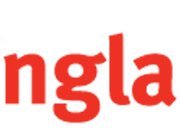 As a self-catering business providing accommodation to paying guests you’ll need to know about the Equality Act 2010. You’ll also need to be complying with it.
As a self-catering business providing accommodation to paying guests you’ll need to know about the Equality Act 2010. You’ll also need to be complying with it.
The Act, which replaced the Disability Discrimination Act, aims to protect anyone that is:
- disabled
- thought to be disabled
- or is associated with someone who is disabled.
What does this mean for your holiday cottage business? It means that you may need to undertake reasonable adjustments in order to make your holiday home easier for disabled guests to use.
Let’s take a closer look at the legal bits of the act, and the simple actions you can take to not only comply with it, but also potentially attract even more people to your cottage.
The Equality Act 2010
The Equality Act 2010 covers a wide range of disabilities, and it’s important that holiday let owners take this into consideration. In law, people with disabilities are defined as those whose physical and mental impairments have an adverse effect on their ability to carry out day-to-day activities.
There are many different types of discrimination, and being aware of them will allow you to avoid accidentally breaking The Equality Act 2010.
Direct discrimination
This includes actions such as refusing to serve someone, or offering a lower standard of service due to their disability.
Indirect discrimination
An example of this is if a B&B serves breakfast in a room that is down a set of stairs and therefore inaccessible for some people.
Discrimination arising from a disability
This discrimination can include situations such as banning a person with Tourette’s syndrome from a bar area because their outbursts may offend other customers.
Discrimination by association
An example here would be if a guest house were to make the carer of the disabled person sleep in the same room to ensure that they don’t disturb other guests.
What can you do?
There are plenty of things you can do to ensure that you are complying with the Equality Act. The law requires you to make reasonable adjustments to both your holiday let and your business practices, so here’re a few ways you can do just that…
Make booking easier
There are a few simple changes you can make to your website to help potential guests should they have a disability. This could include an option to change the size of the text, having a sufficient contrast between the foreground and background, or even having clear and consistent navigation options. The copy that you have should also advise of anything they may need to be aware of before making a booking.
Ask them what they need
It’s important that you do not assume whether a guest has a disability or not. During the booking process it is beneficial to ask if they have any special requirements. If you learn that a guest is disabled and you aren’t sure what they will need, then just ask! Alternatively, seek out an appropriate organisation for advice and guidance.
Create an accessibility guide
Providing disabled guests with honest and accurate information is vital. An accessibility guide can be provided to guests prior to their stay. It’s helpful to make this readily available on your website.
These helpful guides enable visitors to make an informed decision as to whether your holiday cottage is right for them. The document should be clear and honest, and highlight any areas that could cause access issues for some visitors. Visit Britain provide indepth guidance on writing an accessibilty guide.
Do you employ staff?
Education is the key to understanding therefore providing staff with appropriate training is important. Training can make a huge difference to a disabled guest’s stay. As you welcome guests into your holiday cottages, you should be putting any training into practice. Ensure that your guests know how, where and when they can ask for help or assistance.
Go the extra mile
One of the best things you can do for a disabled guest is to go the extra mile. Providing them with any help or support that they need can ensure that their stay is a positive one. Little touches like a large print welcome pack for visually impaired guests can make their visit easier and more enjoyable.
Please note this article is only an initial guide to the Equality Act 2010, for matters specific to your own holiday cottage business seek legal advice.
For more information on the Equality Act 2010 visit the link below:
Need an insurance quote for your holiday let or cottage complex? Give us a call us on 01237 429444.


